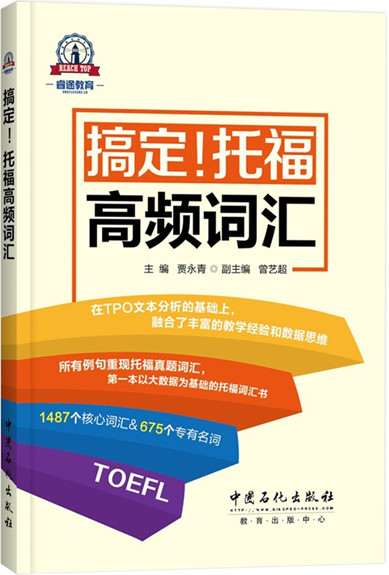The race is due to start in ten minutes.
还有十分钟赛马就该开始了。
但due也可以单独使用:
The plane was due(in)at six.It is an hour overdue.
飞机应该是6点到,现在已误点一小时了。
due to(介词)意为“是……的结果”,“由于……”:
The accident was due to carelessness.
这起车祸是由粗心造成的。
owing to意为“由于……”,“因为……”:
Owing to his carelessness we had an accident.
由于他的粗心大意,我们出了车祸。
due to必须置于主语+动词之后,但英国人常常粗心大意地在句首应该使用owing to时错用了due to。
certain和sure与动词不定式连用,表达说话人的判断。bound也可用在此处:
Tom is certain/sure/bound to win.
汤姆肯定会赢。(说话人对此很有把握。)
但是主语+certain/sure+that从句结构则表达主语的判断:Tom is sure that he will win.
汤姆确信他能获胜。(汤姆对于获胜有十分把握。)
confident that如上面所说可代替certain/sure that,但confi-dent不能放在动词不定式之前。
sure,certain,confident均可放在of+名词/代词或动名词之前:Unless you’re early you can’t be sure of getting a seat.除非你早去,否则你不会有座位的。
bound后面可跟动词不定式,但不能跟that从句。
bound+动词不定式也有“有义务做”的意思:
According to the contract we are bound to supply the materials.
按照合同我们必须提供材料。
afraid(of),ashamed(of),sorry(for/about)
afraid of,ashamed of,sorry for/about+名词/代名词或动名词的例子如:
She is afraid of heights/of falling.
她怕登高/摔下来。
- 06-13·2018年托福语法易错题30道
- 06-08·2018年托福语法练习题(13篇)
- 06-08·2018年托福语法练习题(13)
- 06-08·2018年托福语法练习题(12)
- 06-07·2018年托福语法练习题(11)
- 06-132018年托福语法易错题30道
- 06-082018年托福语法练习题(13篇)
- 05-312018年托福语法高分要点介绍
- 05-122018年托福语法练习题(2)
- 05-122018年托福语法练习题(1)
编辑推荐
- 模拟试题
- 历年真题





